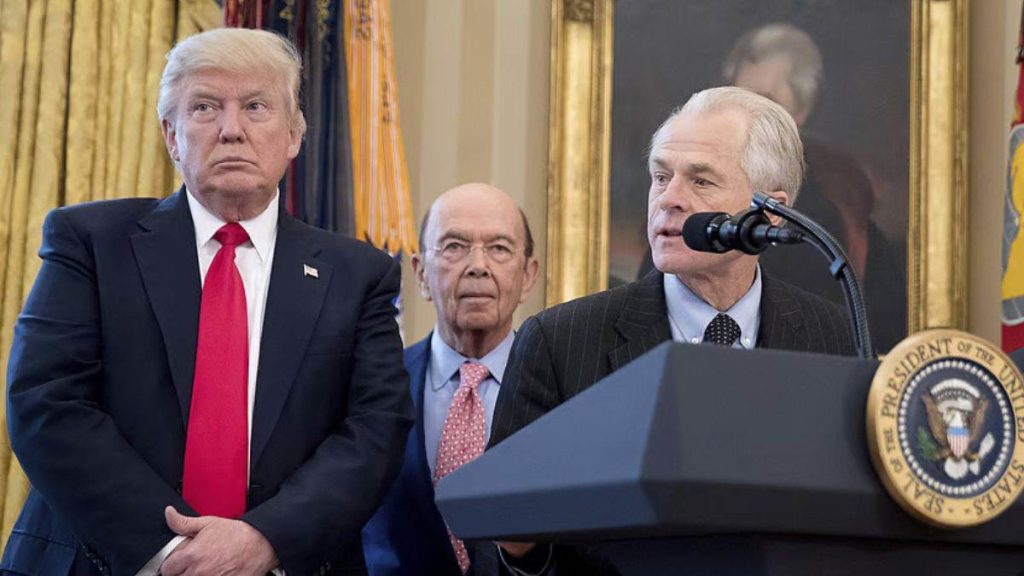Washington, Trump’s trade advisor Peter Navarro has accused Indian Brahmins of profiteering by purchasing Russian oil. He stated that India’s Brahmins are profiting from Russian oil, while the entire India is paying the price.
Navarro claimed that by buying oil from Russia, India is funding Russia’s attack on Ukraine. Therefore, India is facing the highest tariffs. This is not harming Russia or the U.S., but rather the common Indian people. They should understand this.
Navarro called India a ‘laundry machine for Russia’ and alleged that India is not only increasing trade imbalance but also strengthening alliances that are against U.S. interests.
After the Russia-Ukraine war, Western countries imposed strict economic sanctions on Russia. Despite this, India continued to purchase cheap crude oil from Russia.
-
India bought discounted crude oil from Russia, refined it, and sold it to other countries in Europe and Asia.
-
This process reduced India’s energy costs and brought huge profits to the refinery sector.
The U.S. advisor claims that a specific segment of Indian society, particularly the Brahmin community, is benefiting from these profits.
Questions Raised by the Statement
-
Why was a caste angle introduced?
-
India’s oil trade is controlled by the government, public sector undertakings, and private companies.
-
In such a scenario, claiming that a specific caste is benefiting only fuels political and social controversy.
-
Angle of U.S. Politics
-
The U.S. is in an election season, and Trump’s statements and his advisors’ comments often create controversies.
-
The U.S. lobby has already been displeased with Russia-India trade.
-
India’s Response
-
Officially, the Indian government has not issued any statement on this matter.
-
However, experts say such statements could harm India-U.S. relations.
India’s Energy Strategy
India is the world’s third-largest oil consumer.
-
Over 85% of crude oil needs are met through imports.
-
Cheap oil from Russia has helped stabilize India’s financial situation.
-
The benefits reached the entire country’s economy and the general public, not any specific community.
Social Controversy
In a diverse society like India, linking an economic activity to caste can have serious consequences.
The Trump advisor’s statement appears to be merely political and propaganda rhetoric, with a weak factual basis. For India, the challenge is to ignore such controversial statements and focus on its economic and diplomatic interests.
Washington
Washington, D.C., the capital of the United States, was founded in 1790 as a planned city to serve as the nation’s seat of government. It is renowned for its iconic neoclassical monuments and federal buildings, including the White House, the U.S. Capitol, and the Lincoln Memorial, which reflect its central role in American political history.
India
India is a culturally rich and ancient civilization in South Asia, known for its vast history spanning thousands of years, from the Indus Valley Civilization to the Mughal Empire and British Raj. It is renowned for its profound philosophical traditions, diverse languages and religions, and iconic landmarks like the Taj Mahal. Today, it stands as the world’s largest democracy and a major global economy.
Russia
Russia is a vast transcontinental nation with a rich history spanning over a millennium, from the medieval state of Kievan Rus’ to the powerful Russian Empire and later the Soviet Union. Its cultural landscape is defined by iconic sites like the Kremlin and Red Square in Moscow, the Hermitage Museum in Saint Petersburg, and numerous historic Orthodox cathedrals.
Ukraine
Ukraine is a sovereign Eastern European nation with a rich history, having been a center of East Slavic culture as the medieval state of Kievan Rus’. It has faced centuries of foreign domination before gaining independence in 1991 following the dissolution of the Soviet Union. The country is known for its Orthodox Christian monasteries, Cossack heritage, and vast, fertile steppes.
U.S.
The United States of America is a federal republic founded in 1776 after declaring independence from Great Britain. Its history is defined by westward expansion, the Civil War, and its emergence as a global superpower in the 20th century. Culturally, it is a vast and diverse nation known as a “melting pot” of immigrant influences, with a significant global impact on media, technology, and popular culture.
Europe
Europe is a continent with a rich and complex history, shaped by ancient civilizations like the Greeks and Romans, the transformative Middle Ages, the Renaissance, and periods of both immense conflict and cooperation. It is home to a vast number of significant cultural sites, from the Colosseum in Rome to the Acropolis in Athens, which reflect its deep historical layers. Today, it is known for its diverse cultures, languages, and as the home of the European Union, a unique political and economic partnership.
Asia
Asia is the world’s largest and most populous continent, home to a vast collection of ancient civilizations and cultural sites. Its history spans millennia, from the early river valley societies in Mesopotamia and the Indus Valley to the great empires of China, Persia, and the Mongols. Today, it is a region of immense diversity, containing a wealth of historic temples, palaces, and monuments that reflect its deep and complex heritage.
Brahmin community
The Brahmin community is a prominent social group in Hinduism, traditionally regarded as the priestly and scholarly class responsible for religious rituals and preservation of sacred texts. Historically, they held the highest position in the ancient Varna system of social hierarchy. While their societal role has evolved over time, they continue to be influential in religious, academic, and cultural spheres across South Asia.




